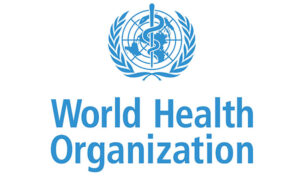
Nine of Nigeria’s leading banks earned a combined N14.26 trillion in interest income in 2024, more than double the figure recorded the previous year, as businesses in the real sector grappled with rising operational and funding costs.
This surge represents a 119.55 per cent increase from the N6.49 trillion recorded in 2023, according to an analysis of the audited financial statements of the banks submitted to the Nigerian Exchange Limited (NGX).
The banks include First Bank Holding Company (First Holdco), Guaranty Trust Holding Company (GTCO), Zenith Bank Plc, United Bank for Africa (UBA), FCMB Group, Fidelity Bank, Stanbic IBTC Holdings, Access Holdings, and Wema Bank.
At the same time, the manufacturing sector – regarded as the backbone of the real economy – reported operational cost burdens amounting to N2.5 trillion in 2024, highlighting a growing disconnect between the financial sector and the productive economy.
Access Holdings, Zenith Bank Lead in Interest Earnings
Among the nine banks, Access Holdings recorded the highest interest income in absolute terms, with N3.11 trillion, a 98.69 per cent increase from N1.56 trillion in 2023. Zenith Bank followed closely with N2.72 trillion, up 137.74 per cent year-on-year.
First HoldCo, the parent company of FirstBank, posted a 155 per cent rise in interest income, reaching N2.39 trillion—the highest growth in percentage terms.
UBA also recorded a 120 per cent increase to N2.37 trillion, GTCO earned N1.32 trillion (up 148 per cent), while Stanbic IBTC grew its interest income by 109 per cent to N566 billion.
Among the mid-tier banks, FCMB Group saw its interest income grow by 75.16 per cent to N621.81 billion, Fidelity Bank by 85.03 per cent to N803.05 billion, and Wema Bank by 91.03 per cent to N354.63 billion.
Revenue Growth Fueled by Rising Interest Rates
The impressive earnings were largely driven by elevated interest rates following aggressive monetary tightening by the Central Bank of Nigeria (CBN). In 2024, the Monetary Policy Committee (MPC) raised the benchmark interest rate by 875 basis points, taking the Monetary Policy Rate (MPR) from 18.75 per cent in 2023 to 27.50 per cent by year-end.
The decision, aimed at curbing inflation—recorded at 34.80 per cent in December 2024—has inadvertently led to higher lending costs for businesses and households, thereby inflating banks’ interest income.
Interest Income Includes Earnings from Bad Loans
Interestingly, part of the interest income recorded by the banks includes earnings from non-performing loans (NPLs). For instance, Zenith Bank disclosed N18.25 billion in impaired financial assets, while UBA reported N4.26 billion in interest income from bad loans. Fidelity Bank revealed it earned N8.10 billion from non-performing facilities in 2024.
Manufacturers Lament Soaring Costs
While banks posted record earnings, players in the manufacturing sector decried the impact of high interest rates on business sustainability.
Speaking at a recent town hall organised by the CBN and the Bankers Committee in Lagos, the President of the Manufacturers Association of Nigeria (MAN), Francis Meshioye, said manufacturers spent over N1.3 trillion on loan interests and another N1.2 trillion on energy in 2024.
“Cost of funds now takes up to 35 per cent of our expenses, while energy costs contribute another 30 to 40 per cent. It’s simply unsustainable for many businesses,” he said.
As of March 2025, Nigeria’s interest rate stood at 27.50 per cent, while inflation was 24.23 per cent, following the rebasing of the Consumer Price Index in January.
The Centre for the Promotion of Private Enterprise has urged the MPC to consider easing monetary policy to alleviate the financial pressure on the real economy and stimulate production and job creation.







